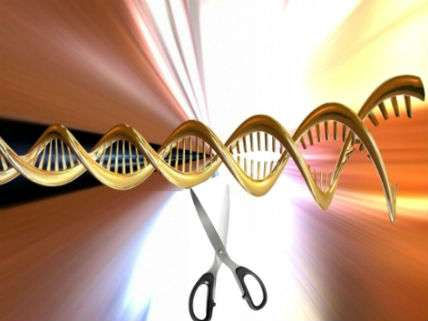Break Up Big Seed!
- OurStudio

- May 27, 2016
- 3 min read

Wellcome
Regulation killed biotech crop innovation. In the 1980s, at the dawn of the crop biotechnology era, scores of startups eagerly applied new bioengineering techniques to modify and enhance crop varieties. They have all vanished. Now the good news: The new CRISPR gene-editing technology may revive and restore competition and variety to the seed market. But only if activists and regulators stay out of the way.
Today activists argue that the big four crop biotech companies—Monsanto, DuPont/Pioneer, Syngenta and Dow AgroSciences—have monopolized the world's seed markets, commanding more than half the world's commercial seed supply. In the U.S. they sell 80 percent of seed corn and 70 percent of soybeans planted. In 2009, the U.S. Department of Justice launched an antitrust investigation of Monsanto, but it ultimately decided not to take action.
Long gone are the myriad early agbiotech startups—DNA Plant Technology, Agracetus, Crop Genetics International, Advanced Genetic Sciences, Biotechnica Agriculture, United Agriseeds, Molecular Genetics, Agrigenetics, and so on. Researchers at Calgene, founded in 1980, predicted that the first commercial biotech crops would be in the field by 1988. Instead, the first successful commercial biotech crops were not deployed until 1996. By the mid-1990s, most of the independent agbioech startups were no more; many of them had been bought up by the big chemical companies that now dominate commercial crop biotechnology.

Dupont
Consequently, the seed market for most commercial crops is highly concentrated. This is largely the result of regulation. Thanks to anti-biotech agitation, the Food and Drug Administration, the Environmental Protection Agency, and U.S. Department of Agriculture cobbled together a system for regulating biotech crops in the 1980s. Over time, the rules have become ever more rococo. As a result, according to one recent industry estimate, it costs $136 million to get a new crop variety from discovery through the regulatory approval process. These costs pose a huge barrier to entry for any startups that might want to introduce a new genetically enhanced tomato, spinach, artichoke, or apple, much less extensively planted field crops like corn, soybean, and canola.
Enter CRISPR, a new genome editing technique that enables bioengineers to essentially change and rearrange bits of DNA sequence in an organism's genome wherever they want. The chief factor fueling the strict regulation of agricultural biotechnology is the fear that genes transferred among microorganisms, animals, and plants would somehow get out of control. Yet CRISPR does not necessarily involve moving DNA from one organism to another.

Natural Society
For example, the Pennsylvania State plant pathologist Yinong Yang has used the technique to engineer the common white button mushroom to resist browning. He did that by using CRISPR to delete a few base pairs from a gene. In October, Yang asked the USDA if his edited mushroom requires the agency's approval to grow and market. In April, the agency replied that since the mushroom contained no foreign DNA, it did not fall under its regulations.
Some researchers in Israel have used CRISPR to create cucumbers that resist several plant disease viruses. Again, since no foreign genes or DNA was introduced into the pickle precursors, they should not fall under the purview of current U.S. biotech regulations. Similarly, British researchers have used CRISPR to change how seeds develop in barley and broccoli. Chinese researchers have used gene-editing to create a wheat variety that resists powdery mildew.
Sadly, some activists are calling crop varieties created by CRISPR "hidden GMOs" and are demanding that they be regulated. Why "hidden"? Because there is no easy way to tell a crop variety modified using CRISPR from one that has not been modified, except that one does not, say, die of viral infections. In other words, "hidden" amounts to "virtually indistinguishable." Nevertheless, Friends of the Earth has called for a ban on the commercialization and release of all such CRISPR-enhanced crops.
Since there is no safety or environmental difference between the gene-edited and conventional versions of these foods, there should be no difference in how they are regulated. If activists really want to break up Big Seed, they should support rather than oppose the use of CRISPR to create new crop varieties.




Comments